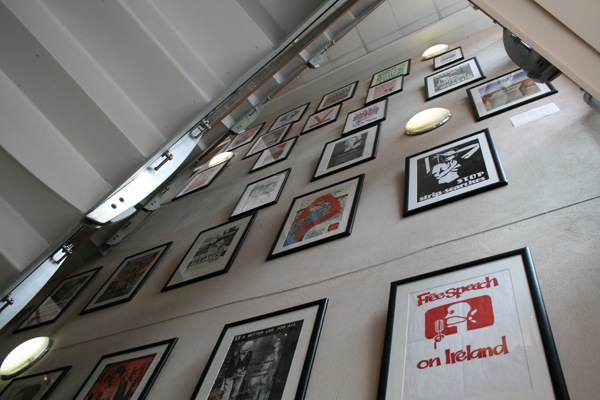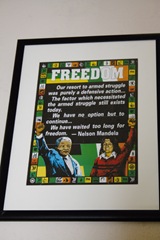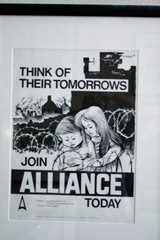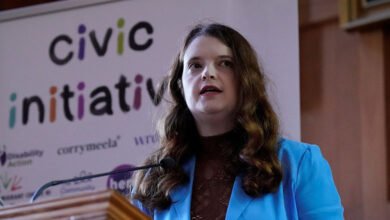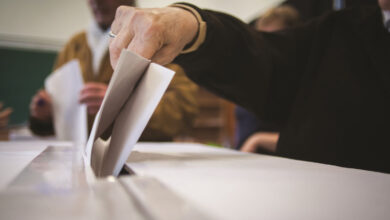Pictured history
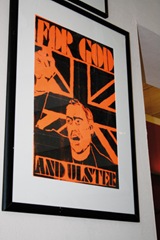 Posters of protest, warnings and calls for co-operation make up the Linenhall Library’s Troubled Images exhibition. Meadhbh Monahan reports.
Posters of protest, warnings and calls for co-operation make up the Linenhall Library’s Troubled Images exhibition. Meadhbh Monahan reports.
Seventy posters from throughout the Troubles feature alongside children’s stories about a romance across the religious divide, in the Linenhall Library’s ‘Troubled Images’ exhibition.
“It’s a very hard exhibition in that it relays the story of a split community over 40 years,” librarian John Killen tells agendaNi. He has seen journalists, historical writers, academics and politicians come to the exhibition over the years to be reminded of how far the peace process has come.
Troubled Images, is one element of the Linenhall Library’s extensive collection of approximately 350,000 newspaper clippings, pamphlets, leaflets and a variety of other items from its Northern Ireland political collection. Together, the collected works aim to chronicle the history of the conflict from all sides of the political divide.
The posters have recently been shown in countries throughout the world such as America, Israel and Dublin. “Feedback was very positive as you can imagine,” Killen comments. “It is used by other countries experiencing this sort of mayhem. They look to Northern Ireland to try to come to some solution.”
The formation of what has become the “most definitive collection” of Troubles paraphernalia began in 1968 when the then librarian, Jimmy Vitty was handed a civil rights flyer as he sat in a bar in Belfast. According to Killen, he realised “this was history in the happening” and kept it. Since then, Linenhall librarians have continued the trend of picking up relevant documents. Killen spent some time collecting the billboards outside shops which contained that day’s headlines.
“It was often an atrocity and I thought: ‘In 40 years when they are making a film about this, authentic items will be vital,’” he recalls.
The collection, which celebrates its fortieth birthday this year, is still relevant according to Killen.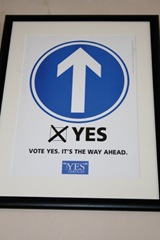
“We still need to come to terms with what we’ve come through collectively.”
Part of the exhibition features the work of Joan Lingard who grew up in Belfast and wrote a series of ‘Kevin and Sadie’ books about a romance between a Catholic boy and a Protestant girl.
The first book called ‘The Twelfth Day of July’ was published forty years ago this year, and became part of the education curriculum in Northern Ireland.
“It just adds a different slant [to the exhibition] but shows the different ways people have addressed this issue in literature. It’s a new and innovative way of looking at our situation.”
During that “very dark” part of history, one of Killen’s favourite posters was done for the Alliance Party by Rowel Friers in 1972. Depicting two children surrounded by barbed wire with demolished buildings behind them, Killen warmed to it because Alliance was “trying to bring sanity to the situation.”
He concludes: “They were trying to normalise our lives and in some ways that poster relates to Lingard’s children’s literature.”

